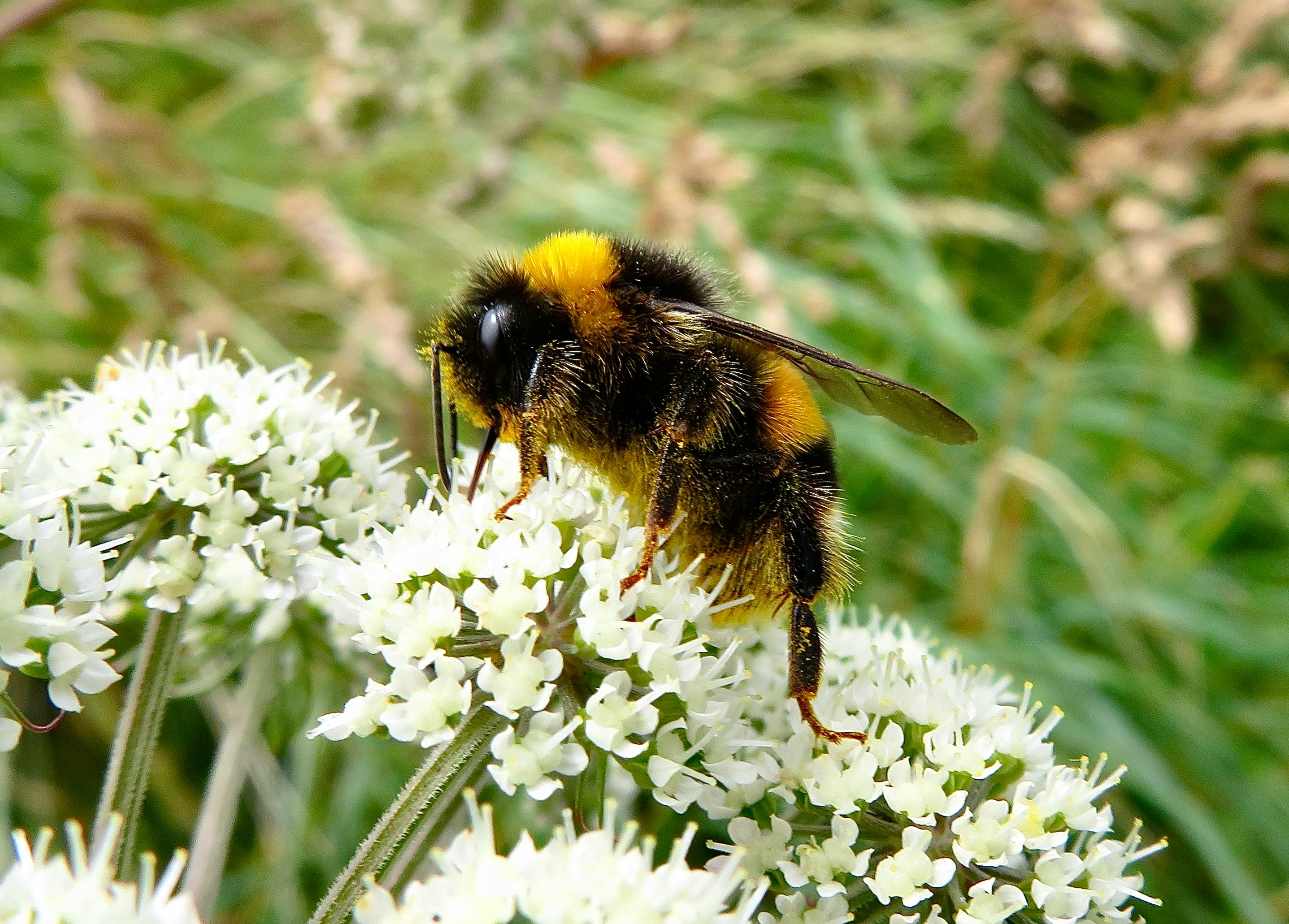
Beeyond Ordinary: Make a Statement with Your Garden – Small-Scale Pollinator Gardens, the Trend that's Creating a Buzz!
Bee populations are grappling with various stressors,

including habitat destruction,
urbanization,
reduction of pollinator-friendly plants,
pesticide and herbicide application,
and infections.
Title: "Reviving Bee Populations: Green is the New Black – Planting Pollinator Gardens to Join the Latest Trend"
Introduction: In the past two decades, bee populations, both native and managed, have faced a daunting decline, posing a significant threat to global ecosystems. As the world's primary flower pollinators, bees play a crucial role in food production, with an estimated economic value of $20 billion through their pollinating services. The repercussions of this decline extend beyond the bees themselves, affecting crop yields, food-option diversity, and even international trade tensions. In this 20-minute read, we will delve into the multifaceted challenges faced by bees, explore the reasons behind their decline, and discover how small-scale pollinator gardens offer a glimmer of hope for these essential pollinators.
The Crisis Unveiled: Bee populations are grappling with various stressors, including habitat destruction, urbanization, reduction of pollinator-friendly plants, pesticide and herbicide application, and infections. The urban landscape of the Chicagoland area serves as a microcosm of these challenges, where bees encounter a multitude of environmental stressors at alarming frequencies.

The Endangered Buzz: The severity of the situation is highlighted by the recent listing of Bombus affinis, or the rusty patched/shielded bumblebee, as an endangered species. Other bee species are under consideration for similar classifications, emphasizing the urgent need for action to prevent further declines.
Hope in Small Spaces: While the challenges seem overwhelming, recent studies shed light on the potential benefits of small-scale pollinator gardens in urban areas. These pockets of habitat, though modest in size, can significantly contribute to supporting bee populations. The resurgence of monarch butterflies in small-scale milkweed gardens and pollinator gardens during the past winter serves as a testament to the impact of such efforts, dispelling the notion that small-scale initiatives are futile.

Dandelions: A Lifeline for Bees: Even if the aesthetics of native perennials do not appeal to everyone, there are simple actions individuals can take to aid bees. Dandelions, often viewed as nuisances, are among the first food sources ava
ilable to pollinators in early spring. Allowing them to bloom without removal or herbicide application provides bees with a crucial food source, strengthening them for the demanding season ahead. For those who find it necessary to remove dandelions, it is recommended to wait until mid to late May, allowing bees to benefit from this vital resource first.

Your Questions Answered: Curiosity is a powerful tool in fostering change. If you have questions regarding bee conservation, feel free to reach out to your landscaper, who can relay them to experts
ready to provide insightful answers. Knowledge is the first step towards creating a bee-friendly environment.
Conclusion: The plight of the bumblebee is a call to action for us all. By understanding the challenges faced by these essential pollinators and embracing small-scale initiatives like pollinator gardens, each individual can contribute to the preservation of bee populations. Dandelions, often dismissed, can be a lifeline for bees, symbolizing the potential for positive change in our approach to landscaping and environmental stewardship. Let us join hands in the collective effort to save the bees and ensure a thriving, biodiverse future.
Have a question?
Lets get you an answer!
Email:
At our small business, referrals are the lifeblood of our growth, and we deeply appreciate the trusts!

